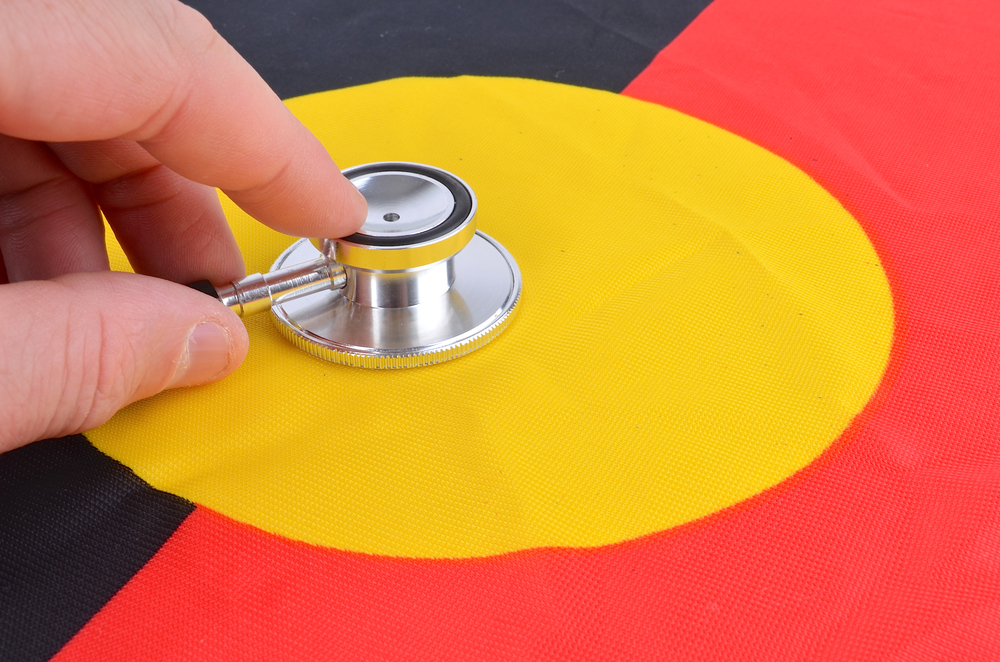Accessing health care services is a key part of the universal right to health. This access can be a considerable challenge, especially in rural and regional areas where fewer health services mean people often have long distances to travel.
There are particular groups who experience extra barriers accessing services. For instance, systemic barriers arise when services are structured in a way to hinder access to groups of people based on their cultural backgrounds. While systemic racism looks different in different settings, in healthcare it can be in the way of funding inequity, creating different performance measures or limited funding processes for groups that ultimately make healthcare delivery difficult.
Adding to these barriers among Indigenous* people in Australia, are their experiences of racism when attending drug and alcohol treatment services, beyond those in every day interactions. These experiences of racism are also present when accessing wider health services, with people who inject drugs reporting stigmatising interactions, such as being treated badly, judged negatively or looked down upon by health workers due to their use. This can discourage Indigenous people from attending future health services. Together, these barriers and experiences impact on the likelihood of Indigenous individuals who use substances accessing and remaining in health services.
In our study published this year, we spoke to Indigenous men in residential rehabilitation for substance use in New South Wales to hear about their experiences of using primary health services care. These services include visits to General Practitioners (GPs), pharmacies and allied health workers.
Half of our participants had used primary care services before attending residential rehabilitation, and although some were offered treatment by primary care staff, some were not, and others had concerns about the treatments offered.
There were systemic barriers at play for the Indigenous males who took part. Not having Indigenous health workers to relate to was seen as an issue, because some felt that non-Indigenous staff judged them or didn’t understand their situation or context they came from. Wait times to get an appointment at a primary care service were also seen as too long.
Not being able to see the same health worker across multiple visits made it hard to build trust. Understandably, some men didn’t want to have to recount their stories and struggles at every visit, especially if they had experienced trauma, which was unfortunately common. One man told us about how it felt to see a different health worker at each visit:
“I’ve had mental health issues, drug issues, alcohol issues, and some of these things are hard to talk about. And sometimes you feel like you’ve just got to pour your heart and soul out to a stranger. That’s not the easiest thing to do.”
Others were worried about getting bad news about their health, which meant they didn’t tell the health workers the full story about their health.
The role of primary care
Primary care services can play a valuable role in giving care for problematic substance use. The service staff can deliver brief intervention and screening, act as care coordinators or refer to allied services.
Primary care is under significant pressure in Australia, particularly since the COVID-19 pandemic began. Rural and regional areas have been hit particularly hard due to pre-existing workforce shortages. GP workers are calling for more resources, better funding models and less red tape to ensure that their work is properly supported by Government to guarantee they can meet their communities’ needs.
Despite these challenges, there are increasing efforts to scale up the role of primary care in problematic substance use. Innovative approaches, such as GP-led opioid substitution treatment and home-based alcohol detoxification give some insights into potential new ways to access and provide care.
Potential solutions to improve access
While the picture may seem dire, there’s some cause for optimism, as there’s been some progress on how to enhance access to primary care by Indigenous men and other groups for problematic substance use. As our participants told us, Indigenous-run services and access to Indigenous staff in health services make a real difference to their experience. In Australia, Aboriginal Community Controlled Health Organisations are frequently used as they deliver culturally appropriate primary care as well as other support (including mental health, dental care, housing support and other services).
It may not always be possible to employ Indigenous workers in every role in every service due to the limited number of workers. While there are regional and national efforts to attract and retain Indigenous workers into the health sector, this is a wider systemic issue that needs to be addressed in the long run.
In mainstream services, improvements to the cultural responsiveness of non-Indigenous workers have also shown promise. This includes incorporating Indigenous models of care into healthcare practice, and implementing new practices that explore medical support rather than incarceration for people experiencing drug-related issues appears to improve Indigenous people’s healthcare experiences.
Care continuity was also emphasised by several Indigenous men, showing the need to improve links between the various health services that someone must go through when receiving care for problematic substance use.
Overall, the clinical picture for primary care is complex. Primary care workers have limited time and can only work with the information at hand, making it hard if clients aren’t comfortable or able to tell their whole story because of stigma, or other kinds of barriers. Primary care workers need to be supported to talk to clients about substance use; our study hopefully serves as reassurance that participants want to have these discussions.
This finding is similar to our related work which shows that, despite primary care clinicians’ concerns that asking about mental health or suicide may offend or trigger clients, people appreciated them showing care. Together with our latest research, we’ve hopefully highlighted how primary care workers have a clear role in care related to problematic substance use, and should have the means and willingness to do so.
*The authors noted that for this article, they chose to use the term Indigenous. In Australia, Indigenous communities include Aboriginal and/or Torres Strait Islander, representing over 500 diverse cultural groups.


